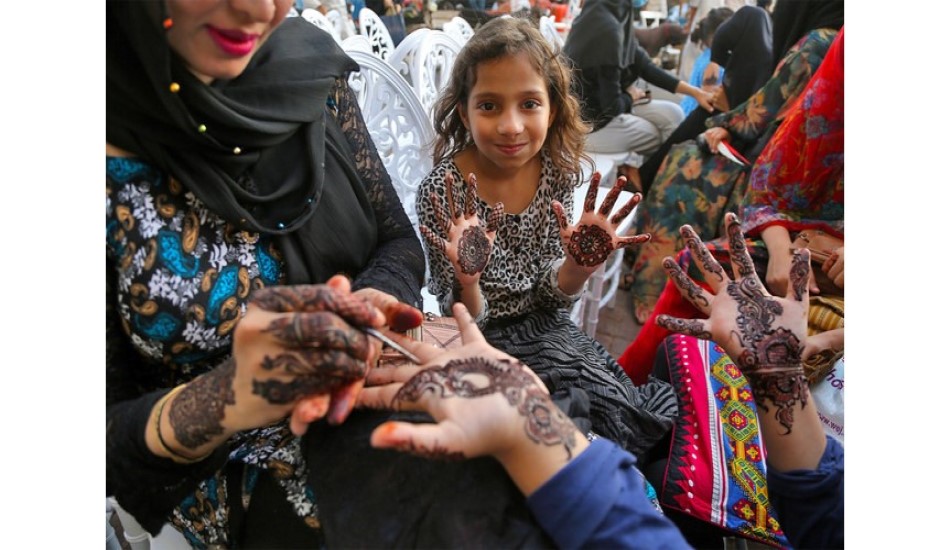How Electoral Reforms are Empowering Women in Pakistan’s Political Arena
The recent electoral reforms in Pakistan have brought significant changes to the country’s political landscape. One of the most notable changes is the increased participation of women in politics. The electoral reforms have empowered women by giving them more opportunities to participate in decision-making and play an active role in shaping the country’s future.
These reforms have introduced several mechanisms to ensure women have a fair chance to contest elections. For example, political parties must now allocate a certain percentage of tickets to women candidates. Moreover, the Election Commission of Pakistan has introduced gender-segregated polling booths to ensure women can vote without fear of harassment or intimidation.
As a result of these reforms, more women are participating in the electoral process than ever before. In the 2018 general elections, over 12,000 women contested for various positions, including for seats in the national and provincial assemblies. This increased participation has given women a voice in the political process and helped bring diverse perspectives and ideas to the table.
Overall, the electoral reforms in Pakistan have provided a platform for women to participate in the political process and have their voices heard. As more women join the political arena, their representation will increase, leading to a more inclusive and representative democracy.
The Role of Technology in Revolutionizing Pakistan’s Electoral System
The role of technology in revolutionizing Pakistan’s electoral system has been significant. The electoral process has become more efficient, transparent, and secure with the introduction of electronic voting machines, biometric verification systems, and other technological advancements.
One of the most significant advantages of technology in the electoral process is reducing human error and manipulation. Electronic voting machines have replaced traditional paper-based voting, often marred by allegations of vote-rigging and ballot-box stuffing. With electronic voting, the results are generated automatically, and there is little room for human interference.
Moreover, biometric verification systems have been introduced to ensure that only eligible voters can cast their ballots. This has significantly reduced the chances of fake voting and impersonation, a widespread issue in the past.
Technology has also improved the efficiency of the electoral process. Electronic voting generates results within minutes of the closing of polls, eliminating the need for manual counting, which could take days or weeks.
Overall, the role of technology in revolutionizing Pakistan’s electoral system has been significant. It has made the process more efficient, transparent, and secure, ensuring a free and fair electoral process.
The Importance of Youth Involvement in Electoral Reforms for a Stronger Pakistan
Youth involvement in electoral reforms is crucial for a stronger Pakistan. The youth of Pakistan comprise a significant portion of the population, and their participation in the electoral process can bring about positive changes in the country’s political landscape.
In recent years, there has been a growing interest among young people in Pakistan to engage in the political process. They have been using social media platforms to raise their voices and demand change from their elected representatives.
However, there is still a need for more active participation of young people in the electoral process. Their involvement can bring fresh perspectives to the table and help address the issues affecting them and their communities.
The youth can also play a vital role in promoting transparency and accountability in the electoral process. They can monitor the conduct of elections and report any irregularities or violations of the law to the relevant authorities.
In addition, the youth can raise awareness about the importance of electoral reforms among their peers and the wider community. They can educate people about their rights and responsibilities as voters and encourage them to participate in the democratic process.
Overall, youth involvement in electoral reforms is crucial for a stronger Pakistan. Their participation can bring about positive political changes and help build a more inclusive and representative democracy.

Pakistan’s Electoral Reforms and its Impact on the Country’s International Image
Pakistan’s electoral reforms have significantly impacted the country’s international image. The international community has praised the reforms for promoting transparency, fairness, and inclusivity in the electoral process.
The introduction of electronic voting machines, biometric verification systems, and other technological advancements has helped to ensure a free and fair electoral process. Technology has made the process more efficient, transparent, and secure, thereby improving the credibility of the electoral results.
Moreover, the increased participation of women and youth in the electoral process has been viewed positively by the international community. The reforms have provided a platform for marginalized groups to participate in decision-making and have their voices heard.
The international community’s positive response to Pakistan’s electoral reforms has helped to improve the country’s image and reputation on the global stage. It has demonstrated Pakistan’s commitment to promoting democracy and upholding the rule of law, which the international community has appreciated.
Overall, Pakistan’s electoral reforms have positively impacted the country’s international image. They have helped to promote transparency, inclusivity, and fairness in the electoral process, which has been viewed simply by the international community.
Exploring the Connection between Electoral Reforms and Economic Development in Pakistan
Electoral reforms and economic development are two crucial factors that can shape the future of Pakistan. The impact of electoral reforms on economic development is a topic that has gained significant attention in recent years. Free and fair elections can provide a conducive economic growth and development environment.
Electoral reforms promote political stability, which is essential for economic development. When there is political stability, investors feel more confident about investing in the country, which can lead to increased economic activity. Moreover, an inclusive and representative democracy can help to ensure that all segments of society are represented in decision-making processes, leading to policies that benefit everyone, not just the elite.
Another way in which electoral reforms can impact economic development is by promoting transparency and accountability. When the electoral process is transparent and fair, it can reduce corruption, a significant obstacle to economic growth. By reducing crime, businesses can operate more efficiently, and investors can be assured that their investments are safe.
Furthermore, electoral reforms can lead to the creation of an independent and impartial judiciary, which is essential for protecting property rights and enforcing contracts. This can provide a conducive environment for businesses to operate and attract foreign investment.
Conclusion:
In conclusion, the connection between electoral reforms and economic development in Pakistan is significant. Electoral reforms can promote political stability, transparency, and accountability, leading to increased economic activity and foreign investment. As such, Pakistan must continue to implement electoral reforms to ensure a free, fair, and prosperous future.
This article is written by Memoona Israr who is intern at perspective.pk

